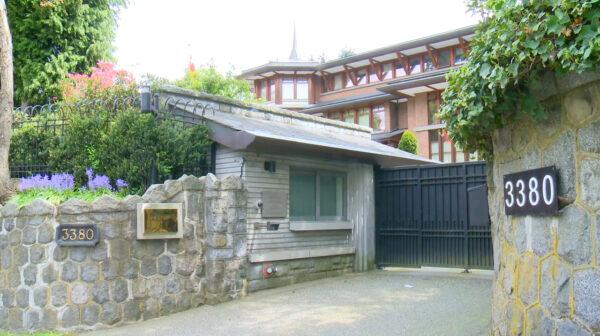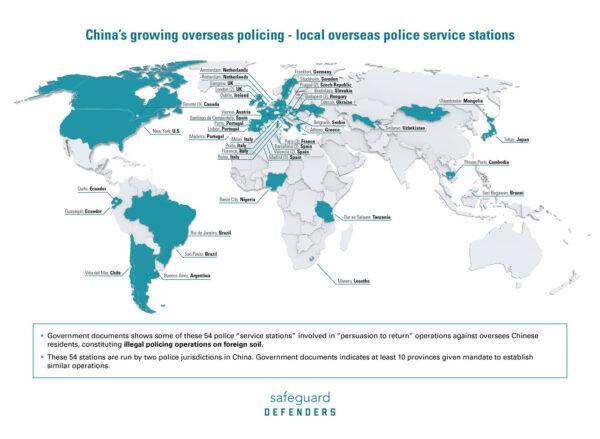A federal court in New York has charged seven Chinese nationals for harassing and coercing a U.S. resident to return to China as part of Beijing’s international extralegal repatriation campaign known as Operation Fox Hunt.
In one instance, an operative told a victim identified only as John Doe-1 that People’s Republic of China (PRC) leadership working on his case had offered to meet with him in Toronto, according to the indictment. The operative also arranged for John Doe-1 to talk to a resident of Vancouver who had previously been repatriated.
The U.S. indictment said seven conspirators—lead defendant Quanzhong An, his daughter Guangyang An, and five others—harassed John Doe-1 and a number of his family members in China to try to force him to return to the country on charges of embezzling public funds equivalent to roughly US$275,700.
In the course of persuading John Doe-1 to return to China, An mentioned a Chinese national living in Canada who had faced a similar situation of being targeted for repatriation. That individual, referred to as “the Canadian Victim” in the court document, agreed to repatriation “despite initially not wanting to go back.”
In another meeting in August, An arranged for John Doe-1’s son to talk to the Canadian victim, who lived in Vancouver at the time.
During the recorded call with John Doe-1’s son, the Vancouver man explained his repatriation to China at the end of 2018. He said the process included being arrested by China’s Ministry of Public Security, followed by “an adjudication of guilt without punishment,” the indictment showed. He said the entire process was handled by Central Commission for Discipline Inspection, a top CCP institution tasked with enforcing internal regulations and fighting corruption in the Party. The man confirmed that he wasn’t mistreated or detained in China and returned to Canada after the verdict.

In another recorded meeting with John Doe-1’s son in Queens, New York, on Jan. 20, 2020, Quanzhong An stated that he was a member of the Chinese People’s Political Consultative Conference, an advisory body in charge of enforcing rules of the Chinese Communist Party (CCP) abroad and part of the regime’s clandestine United Front system.
Operation Fox Hunt
Operation Fox Hunt is an initiative of China’s Ministry of Public Security to locate and repatriate alleged fugitives who flee to foreign countries. Along with the broader-scale Sky Net operation, it was launched in 2014 as part of Chinese leader Xi Jinping’s anti-corruption campaign.The report noted that while Sky Net officially claims to target only economic criminals and officials who are accused of bribery, corruption, or abuse of power, Safeguard Defenders has identified cases where human rights activists or other non-suspects have been targeted.

Some common methods used in these Chinese operations include kidnapping the fugitives in their country of residence and bringing them back to China, or what the report described as “trapping and capturing”—luring suspects to international waters or airspace, or a third country that has an extradition treaty with China, and then arresting or extraditing them.
In the case involving Quanzhong An, the court document shows that Beijing makes use of the U.S. legal system to launch “frivolous” lawsuits aimed at harassing and coercing victims.
On July 1, 2021, An admitted that Beijing had paid for a lawsuit filed against John Doe-1 and his son in the New York State Supreme Court, as a means to coerce John Doe-1 to return to China. The lawsuit alleged that John Doe-1 had stolen money from his former employer in China, and that John Doe-1’s son had knowledge of and benefited from his father’s scheme, according to the indictment.
“They will keep pestering you through a lawsuit,” An told John Doe-1.
When John Doe-1 asked if Beijing would use other measures against him, An said “they will definitely find new ways to bother you” and “it is definitely true that all of your relatives will be involved.”
‘Malign Scheme’
In a press release on Oct. 24, the DOJ said charges have been laid against 13 individuals—including Quanzhong An and his six co-accused—in three separate cases for alleged participation in “malign schemes in the United States” on behalf of the Chinese regime.In one case, the federal court in Brooklyn charged two Chinese intelligence officers with attempting to obstruct a criminal prosecution in the Eastern District of New York. The defendants remain at large. In another case in the District of New Jersey, charges were laid against four Chinese nationals, including three officers from China’s Ministry of State Security.
In its September report, Safeguard Defenders said at least 50 police stations are operating overseas, three of them in the Greater Toronto Area. They are operated by two local-level police services in China—the Fuzhou Public Security Bureau in Fujian Province.
The Qingtian County police service in Zhejiang Province is also operating over 20 outposts around the world, the report said.
The stations have been used to support another campaign by the Chinese regime aimed at fighting telecommunications fraud allegedly conducted by Chinese nationals living abroad. Beijing touted the campaign’s success in “persuading” about 230,000 Chinese to “voluntarily” return to China to face criminal proceedings between April 2021 and July 2022.
Safeguard Defenders found that these unofficial Chinese police stations are also employing “persuade to return” tactics as part of the Fox Hunt and Sky Net campaigns.





